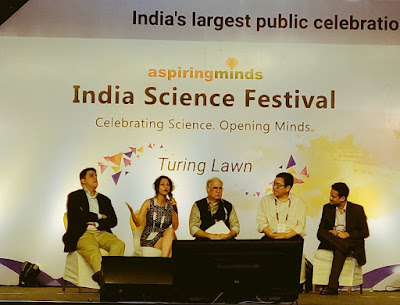Talk at the iconic Volksbühne theatre on AI for the common good
On May 6th, I will be heading to Berlin to help launch the School of Disobedience initiative and fittingly it will be at Berlin's most iconic theatre - Volksbühne, home to art and activism in Germany for over a century. The event will feature a conversation with Lorena Jaume-Palasí , the founder of The Ethical Tech Society, a non-profit focused on the social impact of technology and Advisory Council member of AI for the Spanish government.
We will be speaking about AI for the common good. I will be giving a talk before hand on the Next Billion Users, drawing from my new book on how this population will push us to rethink what constitutes as "good" practice in AI futures. Currently, artificial intelligence delivers lots of material for projections about the future of societies. It seems to disrupt our concept of space, time and borders. Predominant is the view that AI will become or even is already a tool to create dystopias of oppression. However, this is only the view of a few, albeit famous, scholars and intellectuals. But what about those who are supposed to be oppressed? Do they play an active role in the conversation? How is their perception of artificial intelligence and datafication? And what are their visions?
I will be debunking many of these dominant discourses of pessimism and determinism of AI futures by taking on a more bottom up and cultural approach to this topic.
The School of Disobedience is an experimental format to test new ways of independent knowledge production in the 21st century. The inspiration is the spirit of Berlin, the city as an image for this time and this world, heterogeneous, international and politicized. The goal of the School of Disobedience is to concentrate this potential of the city and put it to use for working on a common future. The combination of humanistic and technological perspectives should help to support specific projects which are based on a progressive view of society and will further our sense of justice. This was launched in fall 2018 and continuing into 2019, the School of Disobedience will work in the Grünen Salon with a set of events to test formats and content of the para-academic practice. There will be seminars open for anybody interested in the connection of academic and activist thinking and working, a lab for technologists and theoreticians, a makerspace for people with experiences in different areas, from law to coding, from NGO to academia. Each month, a different academic expert leads a seminar on his or her research and invites people of all ages, professions and experience to join as its students. There will also be monthly public evening events in the evenings, which will allow the general audience an insight into that month’s
We will be speaking about AI for the common good. I will be giving a talk before hand on the Next Billion Users, drawing from my new book on how this population will push us to rethink what constitutes as "good" practice in AI futures. Currently, artificial intelligence delivers lots of material for projections about the future of societies. It seems to disrupt our concept of space, time and borders. Predominant is the view that AI will become or even is already a tool to create dystopias of oppression. However, this is only the view of a few, albeit famous, scholars and intellectuals. But what about those who are supposed to be oppressed? Do they play an active role in the conversation? How is their perception of artificial intelligence and datafication? And what are their visions?
I will be debunking many of these dominant discourses of pessimism and determinism of AI futures by taking on a more bottom up and cultural approach to this topic.
The School of Disobedience is an experimental format to test new ways of independent knowledge production in the 21st century. The inspiration is the spirit of Berlin, the city as an image for this time and this world, heterogeneous, international and politicized. The goal of the School of Disobedience is to concentrate this potential of the city and put it to use for working on a common future. The combination of humanistic and technological perspectives should help to support specific projects which are based on a progressive view of society and will further our sense of justice. This was launched in fall 2018 and continuing into 2019, the School of Disobedience will work in the Grünen Salon with a set of events to test formats and content of the para-academic practice. There will be seminars open for anybody interested in the connection of academic and activist thinking and working, a lab for technologists and theoreticians, a makerspace for people with experiences in different areas, from law to coding, from NGO to academia. Each month, a different academic expert leads a seminar on his or her research and invites people of all ages, professions and experience to join as its students. There will also be monthly public evening events in the evenings, which will allow the general audience an insight into that month’s




Comments
Post a Comment